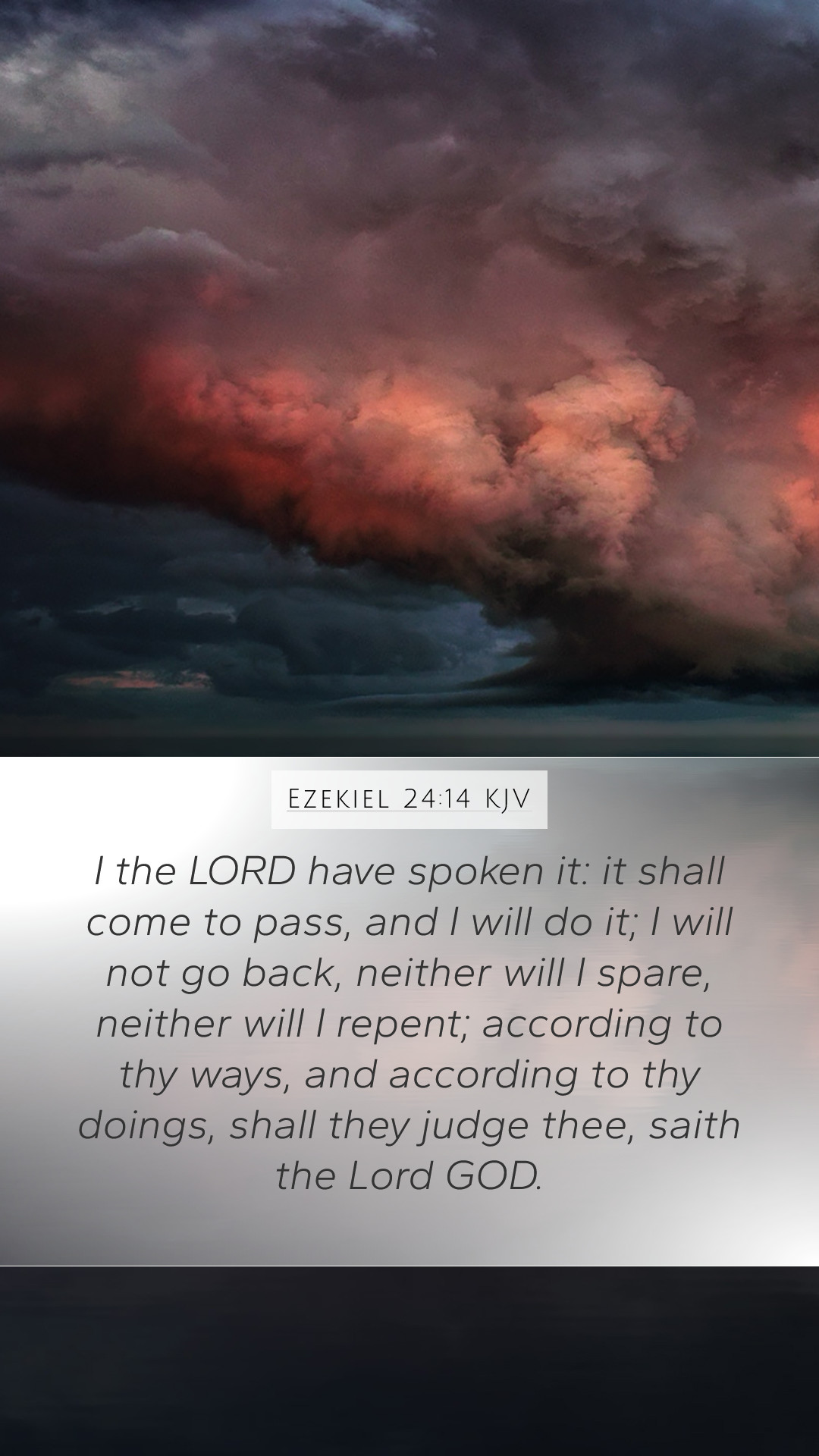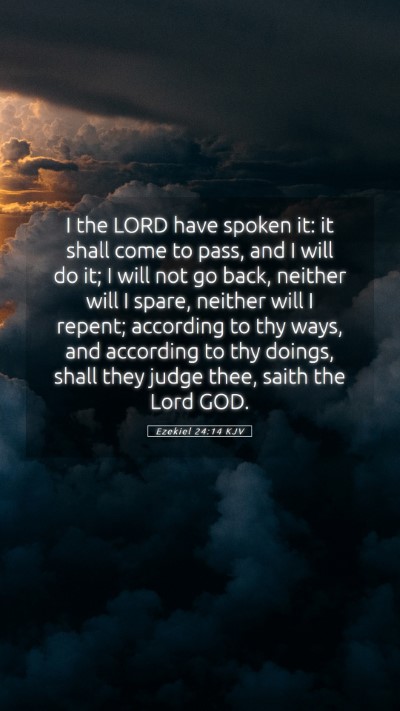Ezekiel 24:14 - Bible Verse Meaning and Commentary
Verse: "I, the Lord, have spoken; it shall come to pass, and I will do it; I will not hold back, nor will I spare, nor will I change my mind; according to your ways and your deeds, you will be judged, declares the Lord God." (Ezekiel 24:14, ESV)
Overview of Ezekiel 24:14
This verse encapsulates a profound declaration from God through the prophet Ezekiel. It signifies God's unwavering commitment to justice and the fulfillment of His word, emphasizing both divine sovereignty and human accountability.
Insights from Commentaries
-
Matthew Henry's Commentary:
Matthew Henry highlights that God's promise and statements will not be neglected or delayed. It underscores the certainty of God's word, where His judgments are essentially contingent upon the behaviors of His people. The emphasis is on God’s absolute authority—when He speaks, it must come to pass—indicating a divine decree that will come to fruition.
-
Albert Barnes' Commentary:
Albert Barnes elaborates on the assurance that God's judgments are applied without favoritism or reconsideration. The language used indicates God's determination and the finality of His decisions. Barnes connects this to the historical context of Israel's unfaithfulness and serves as a warning of the severe consequences of their rebellious deeds against God.
-
Adam Clarke's Commentary:
Adam Clarke provides an in-depth analysis of God's justice as being impartial. He emphasizes that God’s judgments are the direct outcome of the people’s actions—there is a cause-and-effect relationship. Clarke also brings attention to the emotional weight carried by God’s pronouncement; it serves as both a verdict and a lament for the people who have strayed from righteousness.
Key Themes
- Divine Sovereignty: The text reiterates that God is ultimately in control of history and the moral order.
- Judgment: It serves as a rigorous reminder that all actions have consequences, highlighting the importance of moral accountability.
- Immutable Nature of God’s Word: Once the decree is given, it is immutable, highlighting the reliability of God’s promises—and threats.
Applications for Today
This verse encourages believers to reflect on their own lives and actions, recognizing that divine justice remains a principle that applies even in contemporary contexts. Questions we may ask include:
- How can I better align my actions with God's will?
- What are the ramifications of ignoring God’s commandments in my life?
- In what ways do I hold myself accountable to God’s standards?
Related Bible Cross References
- Numbers 23:19: "God is not a man, that he should lie, nor a son of man, that he should change his mind." This verse reinforces God's unchanging nature regarding His promises.
- Jeremiah 17:10: "I the Lord search the heart and examine the mind, to reward each person according to their conduct, according to what their deeds deserve." This complements the theme of divine judgment based on individual actions.
- Hebrews 10:31: "It is a fearful thing to fall into the hands of the living God." This serves as a cautionary reminder of the seriousness of divine accountability.
Conclusion
Ezekiel 24:14 stands as a powerful testament to the themes of judgment, sovereignty, and accountability. For those engaged in Bible study groups or individuals seeking online Bible study, this verse provides crucial insights into understanding Scripture, encouraging deeper reflection on how God's implications affect daily life. Through careful Bible verse analysis and Biblical exegesis, believers can find significant, applicable lessons in such powerful declarations from God.


